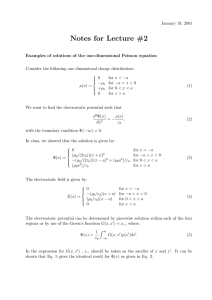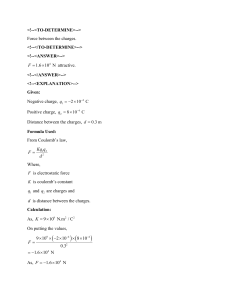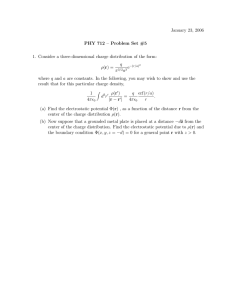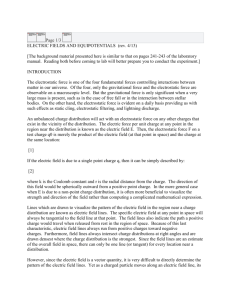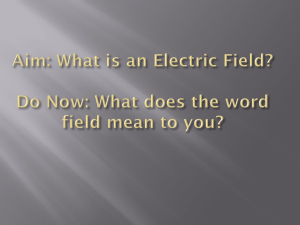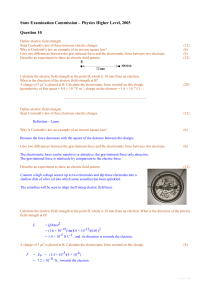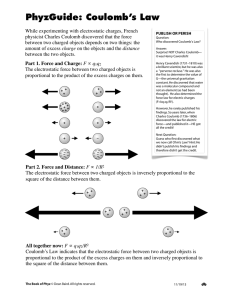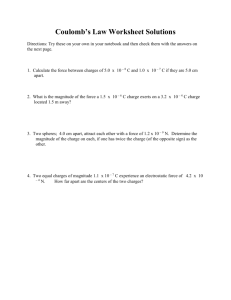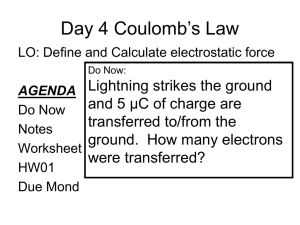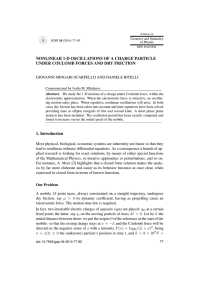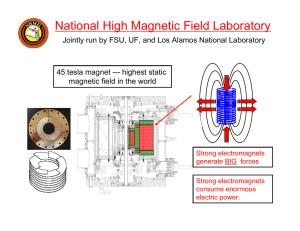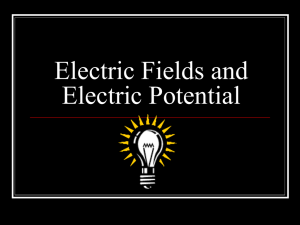• Objects can be charged by rubbing dissimilar materials.
advertisement
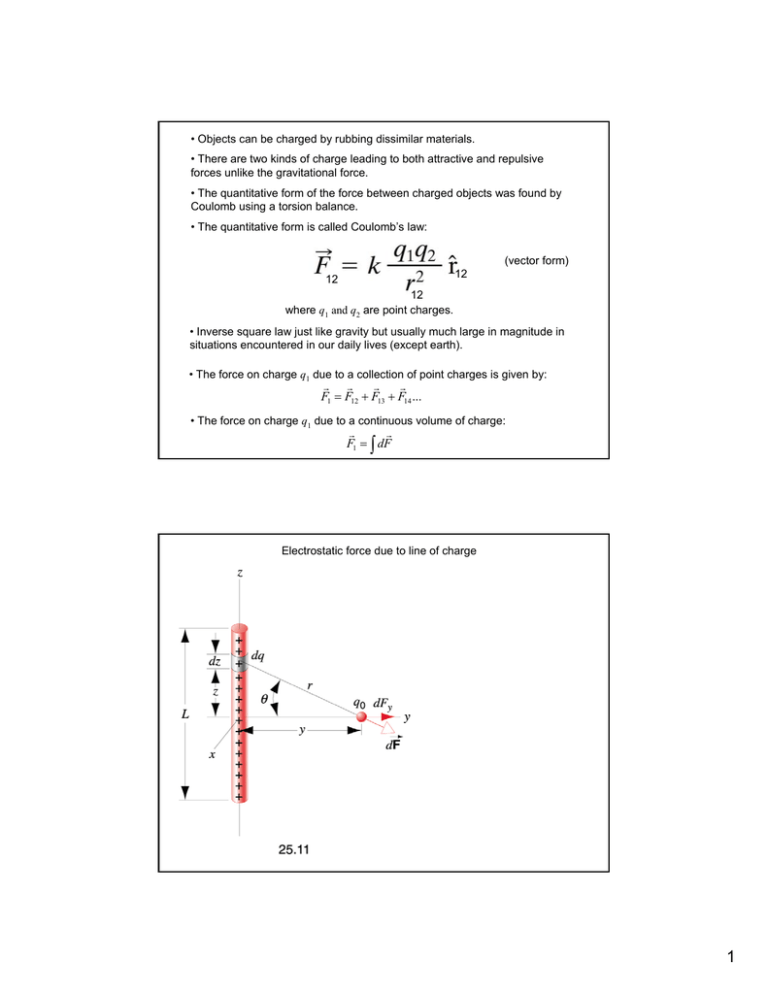
• Objects can be charged by rubbing dissimilar materials. • There are two kinds of charge leading to both attractive and repulsive forces unlike the gravitational force. • The quantitative form of the force between charged objects was found by Coulomb using a torsion balance. • The quantitative form is called Coulomb’s law: (vector form) 12 12 12 where q1 and q2 are point charges. • Inverse square law just like gravity but usually much large in magnitude in situations encountered in our daily lives (except earth). • The force on charge q1 due to a collection of point charges is given by: F1 F12 F13 F14 ... • The force on charge q1 due to a continuous volume of charge: F1 dF Electrostatic force due to line of charge 1 Electrostatic force due to ring of charge Electrostatic force due to disk of charge 2 Binomial theorem n n n n (1 x) n x 0 x1 x 2 x 3 ... 0 1 2 3 Spherical coordinates 3
